Have you ever wanted to grow a lemon tree indoors but felt too intimidated to do so? Perhaps you are new to gardening or have just never dipped your toes in lemon tree cultivation before. Look no further! We have put together this quick guide to help you get started.
Here is a rundown on how to grow your own lemon tree indoors from a seed:
- Prepare your materials and growing area
- Select good lemon seeds to propagate
- Plant several seeds a half inch into a pasteurized soil mix
- Keep the soil moist in a 65-70 degree room
- Continue to monitor and care for the plant as it grows
Of course, growing a lemon tree does not stop there. Though it is relatively easy to grow citrus trees, they still need regular care, attention, and sunlight. If you want your tree to grow fruits, then that is a new challenge altogether. Read on to learn more on how to grow your own lemon tree indoors!

How Long Does It Take To Grow A Lemon Tree From Seed?
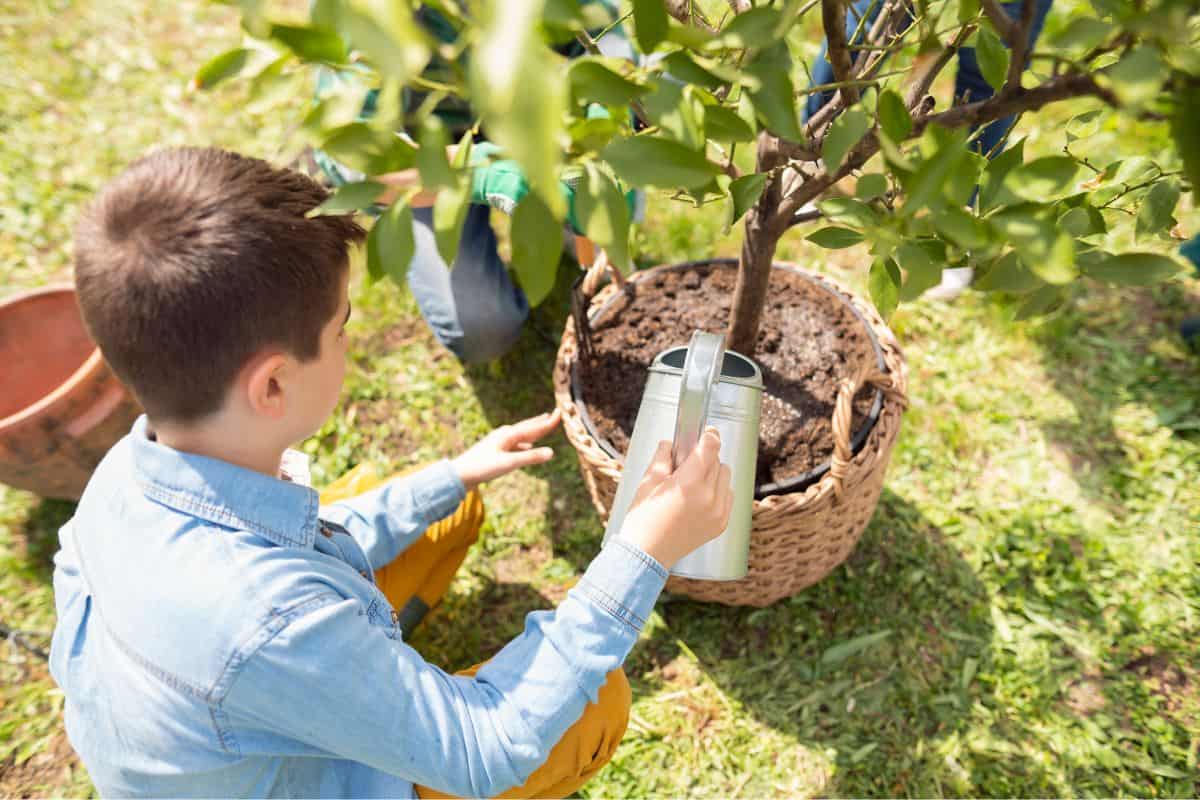
While you can enjoy a small lemon tree within just a few months, it will take anywhere from three to six years for your lemon tree to fully mature. If you want your indoor lemon tree to grow fruits, you will have to wait even more years.
Lemons you buy are not meant to be grown. Farmers and those working in agriculture specifically breed trees to grow new lemons, which the average person is unable to do. This is why you have to plant around five whole seeds at once to make sure one of them will successfully germinate.
Several environmental factors can affect how fast your lemon tree will grow. Since you are growing your tree indoors, it is preferable to plant your seeds in a small terracotta pot that offers a lot of drainage.
How Do You Germinate Lemon Seeds Fast
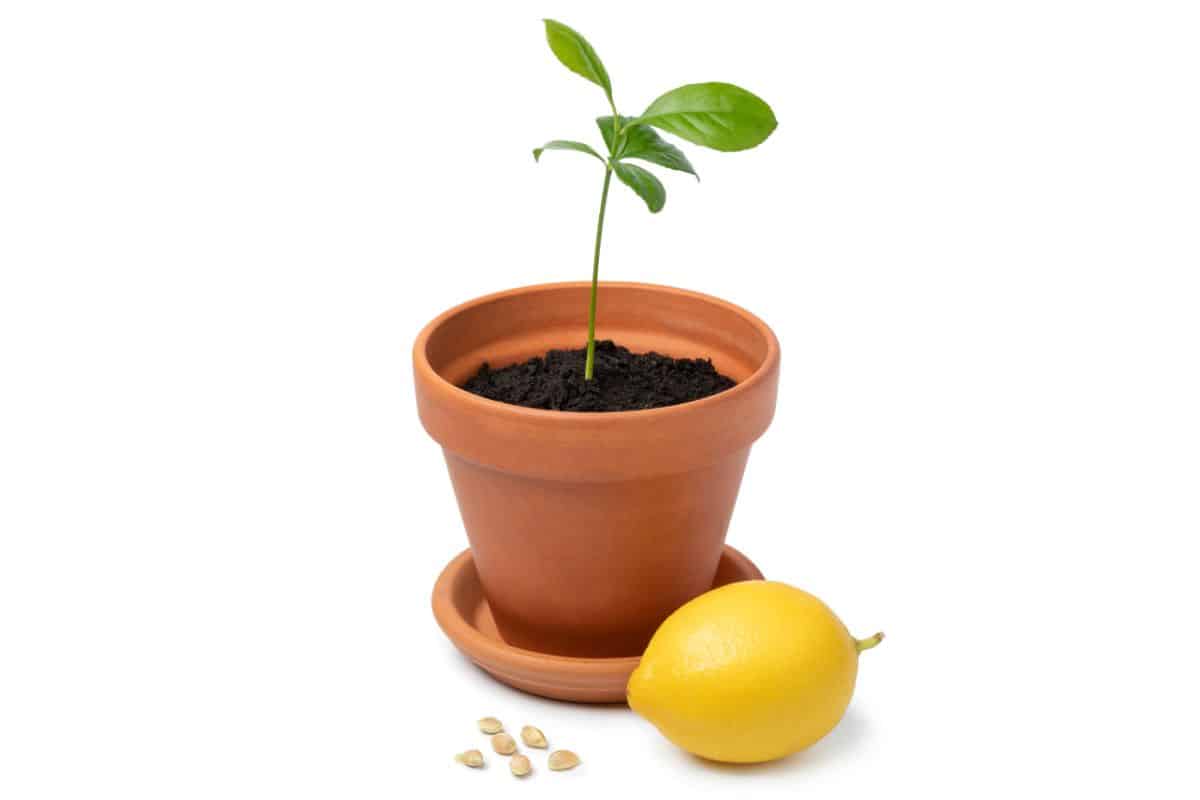
First of all, get your hands on some lemon seeds. You can purchase a pack of seeds or get one from a lemon. If you are going to get seeds from a lemon, avoid slicing it in half. You could end up damaging the seeds inside, making them useless. Peel the lemon instead.
Before planting seeds into your pot of soil, you will need to help them out. Prepare the seeds by checking which ones are good to germinate. If your seeds sink in a glass of water, they will likely grow.
Clean off the slimy coating from the seeds or carefully peel off the outer shell. This will give your seeds a head start and will help them grow better and faster. Immediately plant the seeds. Dry seeds will not germinate, so make sure to keep them moist.
You can also soak the lemon seeds in warm water overnight. Lemon seeds can germinate within a week or even less in the right conditions and without the hard coating stopping them.
Planting The Lemon Seeds
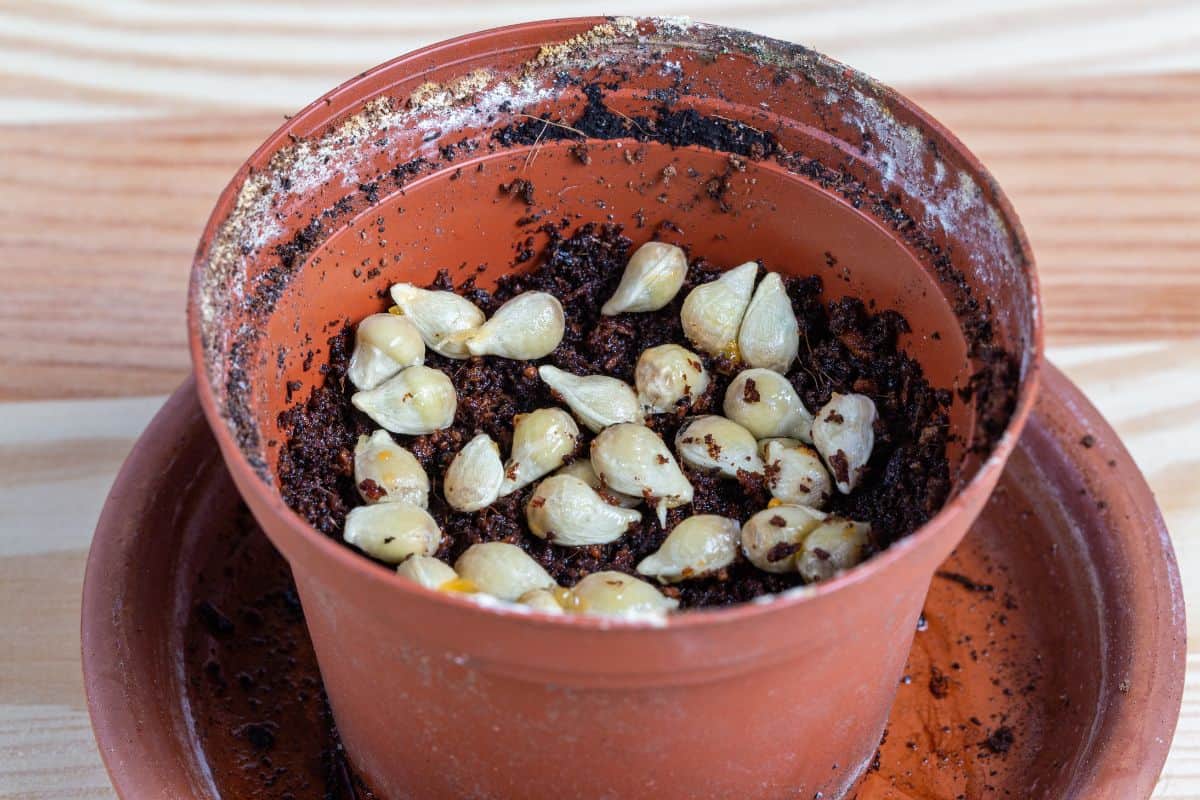
If you cannot plant the seeds immediately after peeling them, you can wrap them in a moist paper towel so that they will not dry out. The seeds may even start germinating in the paper towel. Be careful when transferring them into the pot of soil to not shock the seeds.
If you live in a place that gets cold or frost, then growing a lemon tree indoors is ideal. Keep it in a warm sunny place to promote its growth. Never let the soil or seeds dry out, or else your tree will not germinate.
Once you are ready to plant the seeds, prepare a well-draining pot by filling it with good soil. Make five 1/2 inch deep holes in the soil and plant one seed in each. The seeds should be evenly spaced. Once they start sprouting, you can transfer each seedling to its own pot.
How To Care For A Growing Seedling
The health of your lemon tree starts with the right soil. It is recommended to grow it in pasteurized soil or citrus soil mix. It should have a pH level of 6.0 up to 7.0.


Click here to see Organic Citrus Mix on Amazon
You do not have to expose the pot to the sun immediately since you will want to keep the soil moist while the lemon seeds germinate. Eventually, you will notice a few leaves start to sprout. By this time, you can have the pot next to an open window so the leaves can see the sunlight.
Once the sprouts are big enough to have four or more seeds, water your lemon tree seedling once a week. Pretty soon, you will have a lovely indoor lemon tree by your window sill!
Mature lemon trees need a lot of sunlight. Expose them to at least eight hours of sunlight a day to keep them healthy. You can give supplement light to your indoor lemon tree if it does not have access to enough direct sunlight.
There are artificial lights you can purchase that are specifically for indoor plants. These lights are usually incandescent or compact fluorescent, which is a good substitute for sunlight. Of course, there is no perfect replacement for the sun's rays, but they should be enough to help your tree thrive.
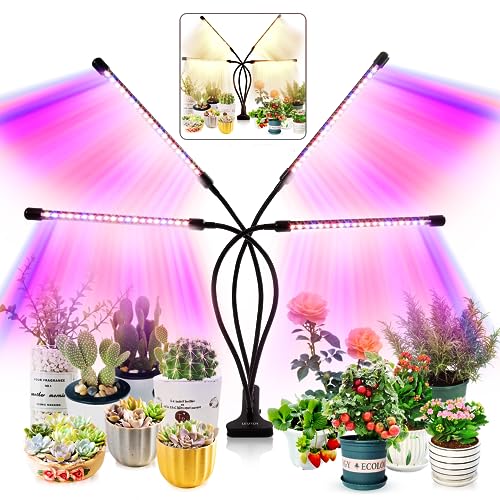

Click here to see Grow Light for Indoor Plants on Amazon
Can You Grow Fruits On An Indoor Lemon Tree?
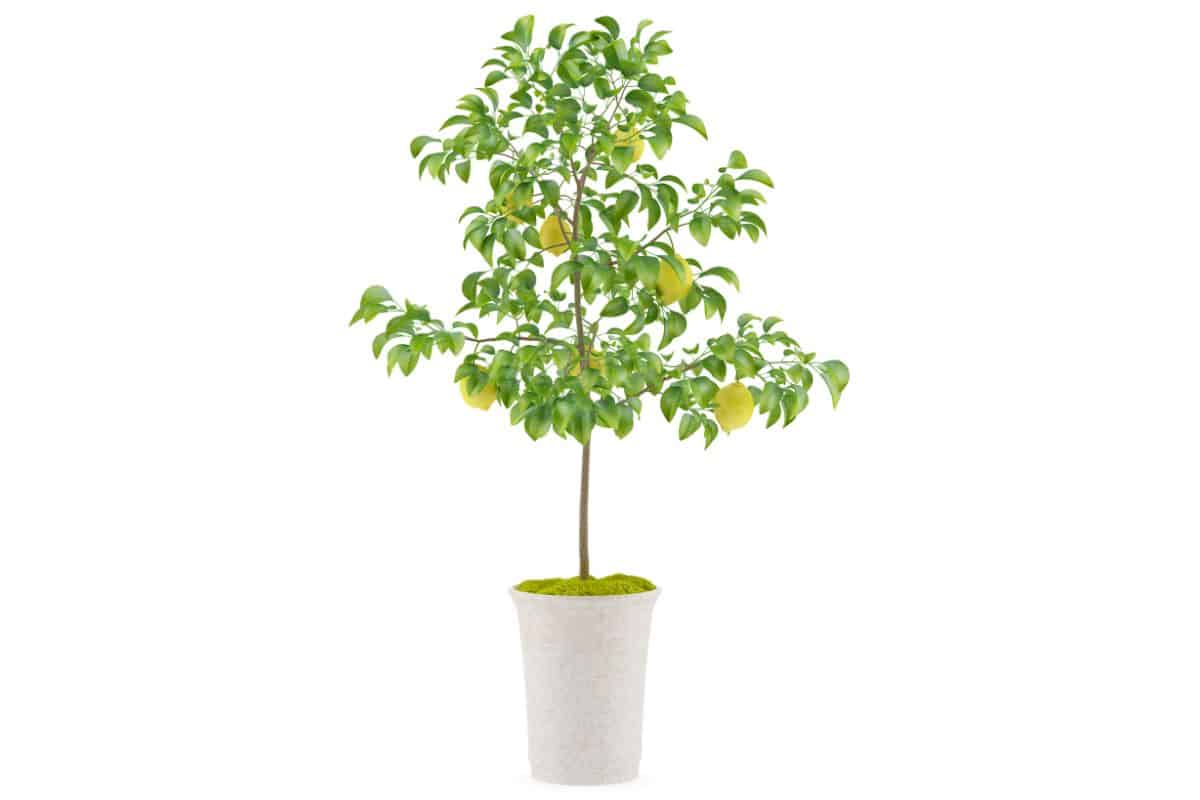
Unfortunately, it is difficult for beginners to grow lemon fruits indoors, much less in a potted plant. This is especially so if your lemon seed was from an existing lemon. While hard, however, it is not impossible!
If you are willing to wait a couple of years, your indoor lemon tree may start flowering and bearing fruit. While not the ideal amount of time to wait, as it will be way beyond your tree's maturity, there is at least a chance of lemon fruits.
You can look forward to your tree-growing fruit in around 3-4 years. Keep in mind, though that the fruit your tree will grow is not going to be the same as the lemon you harvested it from. They will not be just as good, but you will get lemons all the same!
Beginners who are planting a lemon tree from seeds should not expect their tree to bear fruit any time soon. If you want to quickly grow your lemons indoors, consider growing a tree from a lemon graft instead.
You can get lemon tree grafts from already flowering trees to get faster results as soon as the graft matures into a tree.
Common Lemon Tree Problems To Look Out For
Like any living thing, lemon trees can get sick. The leaves may yellow or fall off, and you can get pest infestations. Or, you might have your tree experience rot.
Dealing with disease is never a good time for either you or your tree, so here are a couple of things you need to look out for!
Improper Watering
Whether over watering or under watering, not giving your lemon tree the proper amount of water can cause problems. Drowning your lemon tree in water, or watering it too much during the day, will run the risk of making your tree susceptible to pests and diseases. Too much water will prevent the tree's roots from properly absorbing nutrients in the soil.
A sign that you are overwatering your lemon tree is when its leaves start to drop. Your tree's roots may start to rot when this happens. Adjust your watering schedule and only water young trees once a week.
As for underwatering, you will risk drying up your tree. Though lemon trees need full sunlight to grow, exposing them to rays that are too harsh can burn them. If the soil around the tree gets way too dry, the leaves will start to brown.
Pests and Fungus
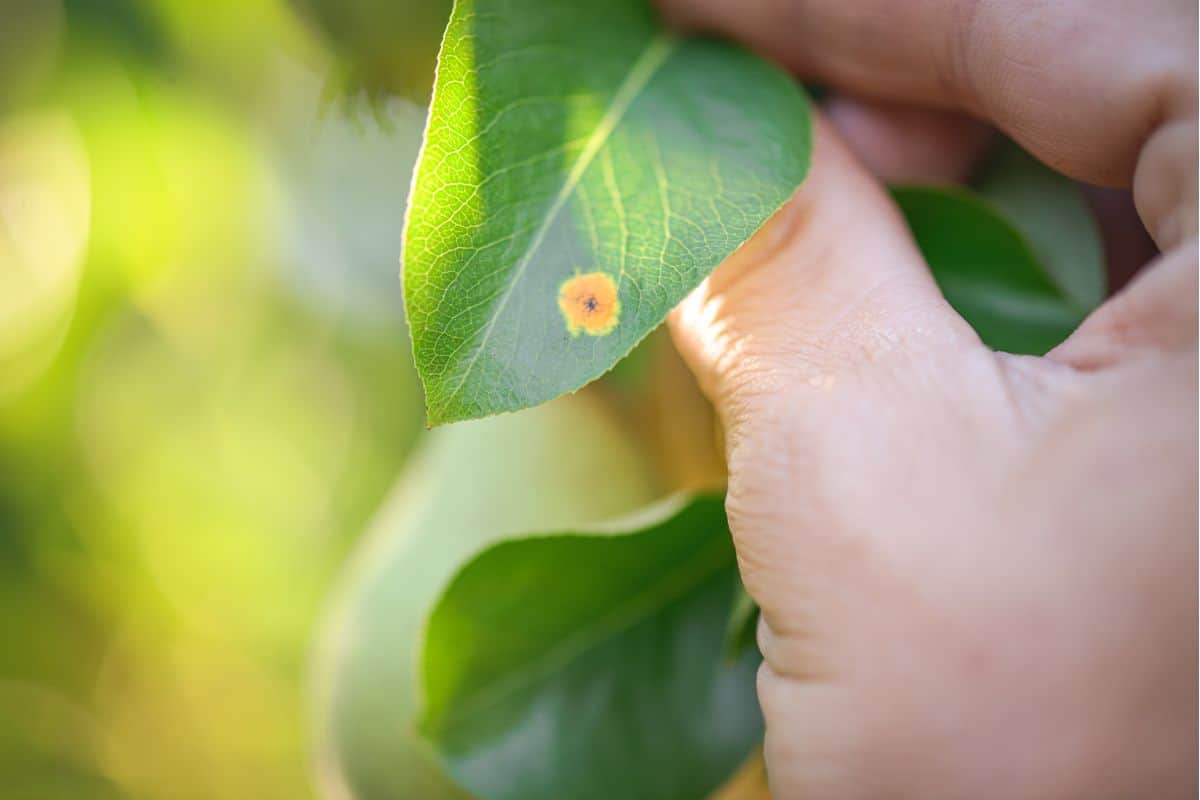
You can avoid this problem by regularly spraying your tree with horticultural oil or pesticide. Be careful not to harm the tree or any pollinators when you do so.
Fungus can make your tree susceptible to pests. Consequently, pests are going to bring illnesses to your tree. Both will rob your tree of nutrients and potentially kill it.
Nutrient Deficiencies
Lemon trees need a lot of nitrogen to flourish. Fertilizer and manure are a great way to nourish your tree and provide the right amount of nitrogen. You can tell a tree is nitrogen-deficient when its leaves start turning yellow.
Nutrient deficiencies are why choosing the right soil is important. Soil that is too basic in pH will cause iron deficiency, while soil with too low pH causes magnesium deficiency.
Of course, your lemon tree needs enough sunlight. This way, it can synthesize its food through photosynthesis. Sunlight deprivation can easily kill your lemon tree. With this, also make sure to keep your tree safe from the cold as it grows better in tropical climates.
Wrapping Things Up
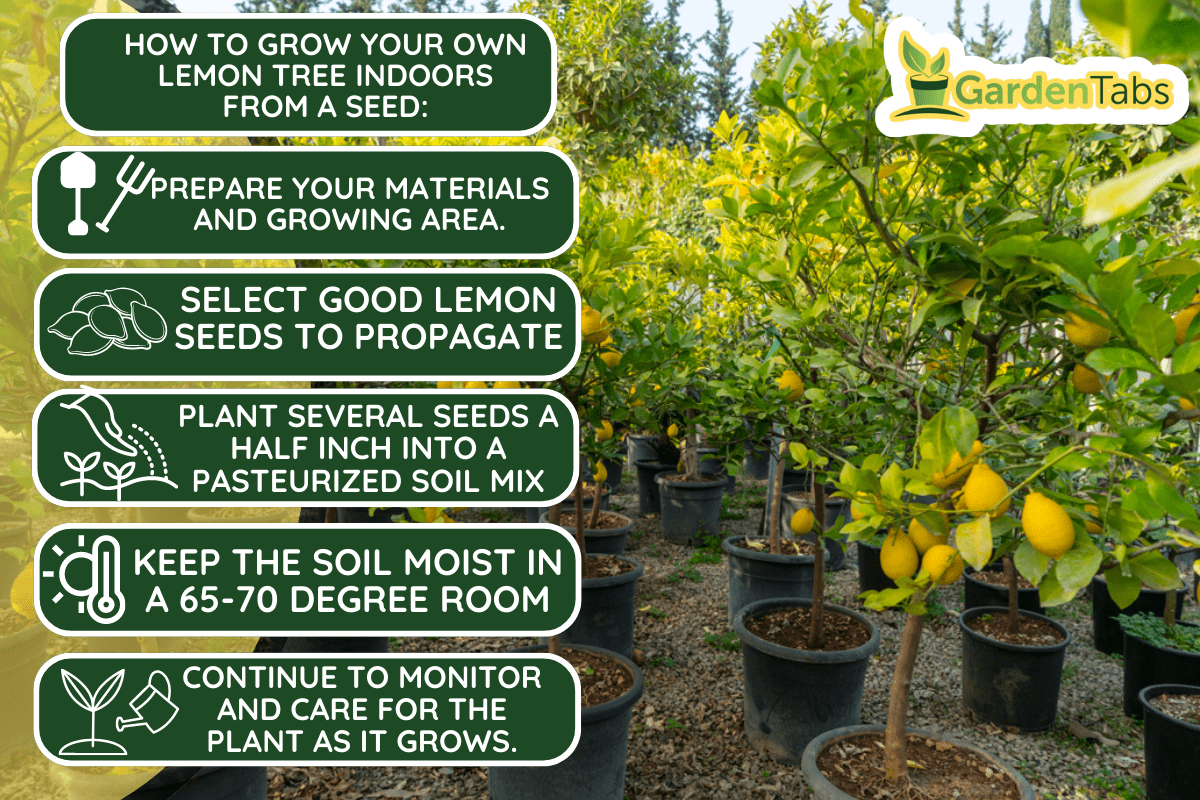
You can easily grow your lemon tree from its seed indoors. Germinate healthy lemon seeds in a small pot and let it get a lot of sunlight as it grows. Take care not to overwater your seedling, but make sure it does not lose moisture in the process.
Check out our other posts before you go!
